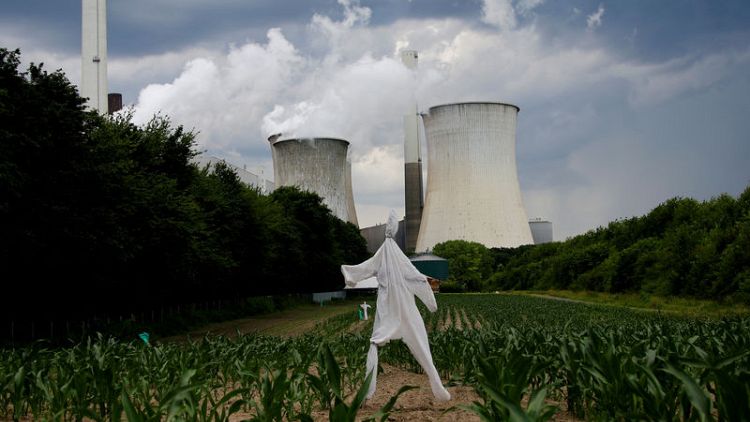By Markus Wacket
BERLIN (Reuters) - Germany plans to shut down its first power plants that use black coal in 2020, a draft law seen by Reuters on Thursday showed, as part of a planned phase-out of coal by 2038 expected to cost at least 40 billion euros ($44 billion).
Black coal, also known as hard coal or anthracite, is a top grade coal with a high energy density. Lower grade brown coal, or lignite, is also used by some power plants.
The government will announce far-reaching steps on climate protection on Sept. 20, including details on the implementation of its coal exit, which envisages that by 2022 an estimated 12 hard coal plants would be shut down, leaving about 30 feeding some 15 gigawatts (GW) into the grid.
According to the Federal Environment Agency some 45 plants run either fully or partially on hard coal.
In the blueprint seen by Reuters, the government also wants to reach a deal with utilities on a timetable to shut down brown coal plants and agree a framework for compensation.
Starting in 2020, the government will each year decide how many gigawatts of brown coal-produced energy should fall from the grid and ask utilities to submit compensation estimates.
Government sources told Reuters the cost of shutting brown coal plants should be significantly lower than 1 billion euros.
It is still unclear if Chancellor Angela Merkel's right-left coalition government can finance the climate protection measures, including the coal exit, without taking on new debt.
The climate package is likely to include a pricing mechanism for carbon emissions and payouts for low-income families to cushion the effects of the new measures.
The so-called climate cabinet, including Merkel, Finance Minister Olaf Scholz, Environment Minister Svenja Schulze and Economy Minister Peter Altmaier, is expected to agree on the package on Sept. 20.
(Writing by Joseph Nasr; editing by David Evans)
